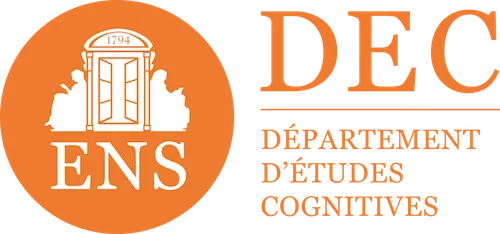

LMS: The Features That Matter for Businesses
In companies, continuous training is crucial to maintain the skills and competitiveness of teams. Learning Management Systems (LMS) are Essential Tools to Achieve This Goal. However, choosing the right LMS can be a real headache, with a multitude of features that aren't always useful.
Business managers, HR decision makers, training managers, this article is for you. We are going to guide you through the really essential features of an LMS, those that will help you maximize the effectiveness of your training programs without getting lost in superfluous options. Because let's face it, no one needs an LMS full of useless gadgets that complicate more than they help.
At Didask, we are experts in e-learning and skills development. For this article, we used our expertise to identify what really matters in an LMS in order to increase training ROI. Our aim is to provide you A clear roadmap for choosing an LMS that will meet the needs of your business and your employees.
With these tips, you should be in a position to make informed decisions and get the most out of your training investment.
1. “Educational” artificial intelligence
Obviously, artificial intelligence (AI) has shaken up the LMS market. But be careful, the most important point here is to ensure the teaching skills of the AI. Unlike a generic AI that could simply generate content, an educational AI is designed to Absorb Pedagogical Complexity and enable everyone, even without training expertise, to create effective and relevant modules.
With educational AI, an LMS becomes a true course design assistant, simplifying the creation of modules by guiding users through best teaching practices. For example, if a course designer is faced with a complex topic, AI can suggest optimized course structures, incorporate techniques like chunking and spaced reminders, and adjust content based on learners' specific needs.
At Didask, Educational AI Is at the heart of our approach. Our system uses advanced algorithms coupled with recommendations from cognitive science research to Analyze Learners' Interactions and Adapt Content Consistencies, while guiding content creators to ensure high-quality modules. To find out more about our educational AI, I invite you to consult our article Beyond ChatGPT: Generative AI at the service of pedagogy
2. Adaptive learning
Adaptive learning is another essential feature for an effective LMS. Unlike traditional approaches, adaptive learning Adjusts the Training Course According to Performance and the preferences of each learner. This maintains high engagement and optimizes knowledge retention.
For example, an experienced salesperson and a new salesperson do not have the same training needs. An LMS with adaptive learning will adjust the content so that everyone can progress at their own pace. At Didask, We Have Integrated Adaptive learning To ensure a personalized and relevant learning experience, for example, with positioning tests before each course to define the initial levels and configure the advances. We talk more about this topic in our article. How Adaptive Learning Improves Learner Engagement.
3. The ease of creating content
A Good LMS Should Allow Simple and intuitive content creation. Integrated authoring tools are essential for trainers to develop training modules quickly and effectively, without the need for advanced technical skills. This is especially where educational AI, discussed above, has a (big) card to play. Be particularly demanding on this point because the number of hours spent designing will depend on it, a number that can quickly fly away with inefficient tools.
Imagine that Pauline from the legal department or Karim from marketing, who have never designed a training course, could create a complete course in a few hours, interactive, with scenarios and all the optimal teaching methods. It's possible with modern authoring tools. At Didask, we designed our LMS so that even those Without pedagogical experience can create high quality content. Our article How to properly use LMS in professional training Provides practical tips for getting the most out of these tools.
4. Advanced analytics and reporting
To assess the effectiveness of training programs, it is crucial to have advanced analytics and reporting features in an LMS. These tools make it possible to Monitor Learners' Progress, to identify weak points and to measure the return on investment of your training initiatives. This is essential in order to continuously improve your career paths.
For example, you can analyze which parts of the program are the most engaging or which skills need more reinforcement. At Didask, our smart analytics make your life easier by doing it automatically Recommendations for interventions to improve your pellets, enough to save a lot of time and aim right. Check out our article Learning Management System: optimizations for businesses for more information on the importance of analytics in an LMS.
5. The user experience
User experience (UX) is of course crucial to ensure learner adoption and engagement. An LMS should offer An intuitive interface, clear routes and smooth navigation So that users can focus on learning instead of technology. Our advice: test, test, test your potential LMS in every way.
A good LMS should also include interactive and engaging elements, like quizzes, videos, and group discussions. At Didask, we have focused on careful UX to make learning not only enjoyable and effective, but also to help learners put their attention in the right place and Manage Their Cognitive Load. If You Want to Go Further, I recommend for an article dedicated to LMS UX.

6. Mobility and accessibility
In today's professional world, mobility is essential. A good LMS should be Accessible on all devices — computers, tablets, and smartphones — to allow learners to follow their courses wherever they are and when they want. This is especially critical for geographically dispersed teams or employees on the go. Regardless of the medium used, the learning experience must remain the same. So think about doing tests on different devices.
Imagine a salesperson on the go who can review sales techniques between appointments using an intuitive mobile application. At Didask, we designed our LMS to be Fully responsive, offering an optimal user experience on all types of devices. Discover how to maximize accessibility with our article LMS accessibility and UX: why it's important.
7. Support and Continuing Education
To ensure the success of an LMS, it is essential to provide Ongoing Technical and Educational Support. Designers and users need easy access to help and resources to solve problems and optimize their use of the platform. Given the complexity of current LMS, a few PDFs and videos are not enough, be careful.
At Didask, we offer comprehensive support for our customers, including training sessions, online tutorials, and responsive technical support. This allows Ensure that trainers and learners can get the most out of our LMS without frustration and without wasting time.
8. Security and compliance
Data security is a major concern for all businesses, and an LMS should offer Robust Measures to Protect Sensitive Information of learners and of the organization. In addition, it must comply with current regulations, such as the GDPR in Europe. Do not hesitate to challenge your LMS under study and to involve your internal experts in the negotiations.
At Didask, we take security very seriously. Our LMS is designed to comply with the highest standards of security and data protection. We are implementing Advanced Security Protocols To ensure that your data is protected from potential threats. And besides, everything is done internally by our teams, in France, without subcontracting abroad. It is not for nothing that the Ministry of the Armed Forces chose us:)
9. Integration with other tools
A powerful LMS must integrate harmoniously with other company systems, such as CRMs, TMS, HRIS and all productivity tools. These integrations allow Centralize Data and Facilitate Training Management. It must also be able to be integrated with other useful tools for training, which thus boost the LMS with complementary expertise, such as Genially, an interactive schema tool that can be used in the Didask LMS.
At Didask, moreover, our LMS is well designed to be compatible with a wide range of third-party software, allowing for smooth integration and efficient data management. For example, you can sync your training data with your CRM to get an overview of the skills of your sales teams. With educational AI, integrations go even further, making it possible Personalized Didask Mentoring On tools like Slack or Teams!
10. Evaluations and feedback
Assessments and feedback are essential for measuring learner progress and the effectiveness of training programs. An LMS should offer robust tools to create varied assessments and provide Instant and personalized feedback. Cognitive science research has in fact proven The Importance of Testing Yourself to Learn, just like the The role of feedback. The latter does not consist in giving the right answer or in judging, but in pedagogically correcting the learners, by cleverly explaining to them why they are right or wrong. These recommendations are of course applied within the Didask LMS where the feedback approach is omnipresent.
Conclusion
Choosing the right LMS for your business is A major strategic decision that can transform the training of your teams. It is crucial to be extremely demanding and not to be satisfied with the first solution that comes up. Essential features such as educational artificial intelligence, adaptive learning, ease of content creation, advanced analytics, and a great user experience are essential to ensure effective and engaging training.
We encourage you to Test These Features by Yourself By further demonstrations of the LMSs you are interested in. Don't be satisfied with marketing promises: check that each system meets your expectations and the specific needs of your employees. At Didask, we offer complete demonstrations to allow you to assess our functionalities and see how our expertise in cognitive science can benefit your business, contact us quickly
To continue exploring the subject of LMS, check out our articles:
- LMS, AI and Cognitive Sciences, the winning e-learning jackpot
- How to change LMS... without a gas factory!
- LMS, LXP, LCMS, authoring tools... How do you choose your learning equipment?
- 10 key steps to implement an LMS in your business
- The great history of e-learning platforms
- LMS: 3 prejudices to bury once and for all!
- In eLearning, how can you improve the engagement of your LMS?
Make an appointment directly with our eLearning experts for a demo or simply more information.












